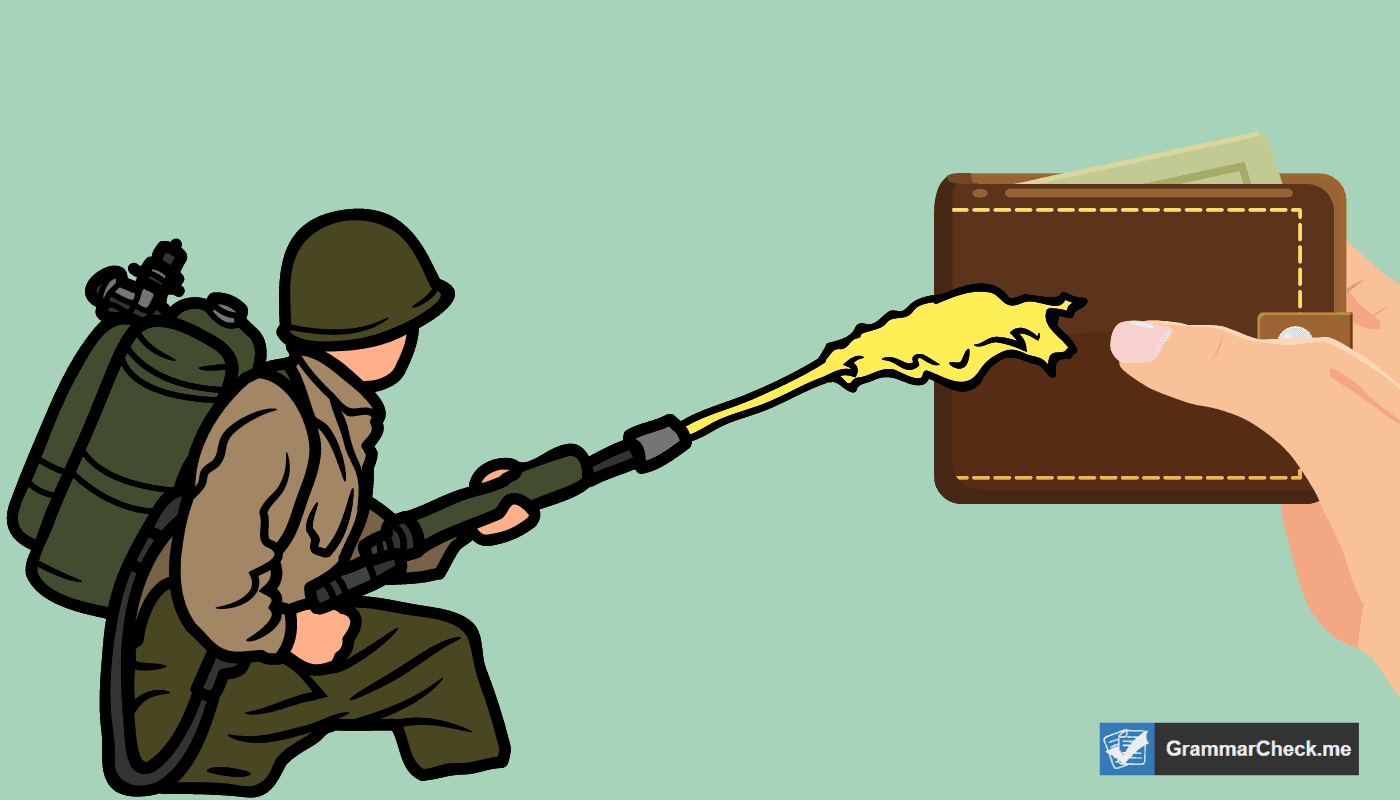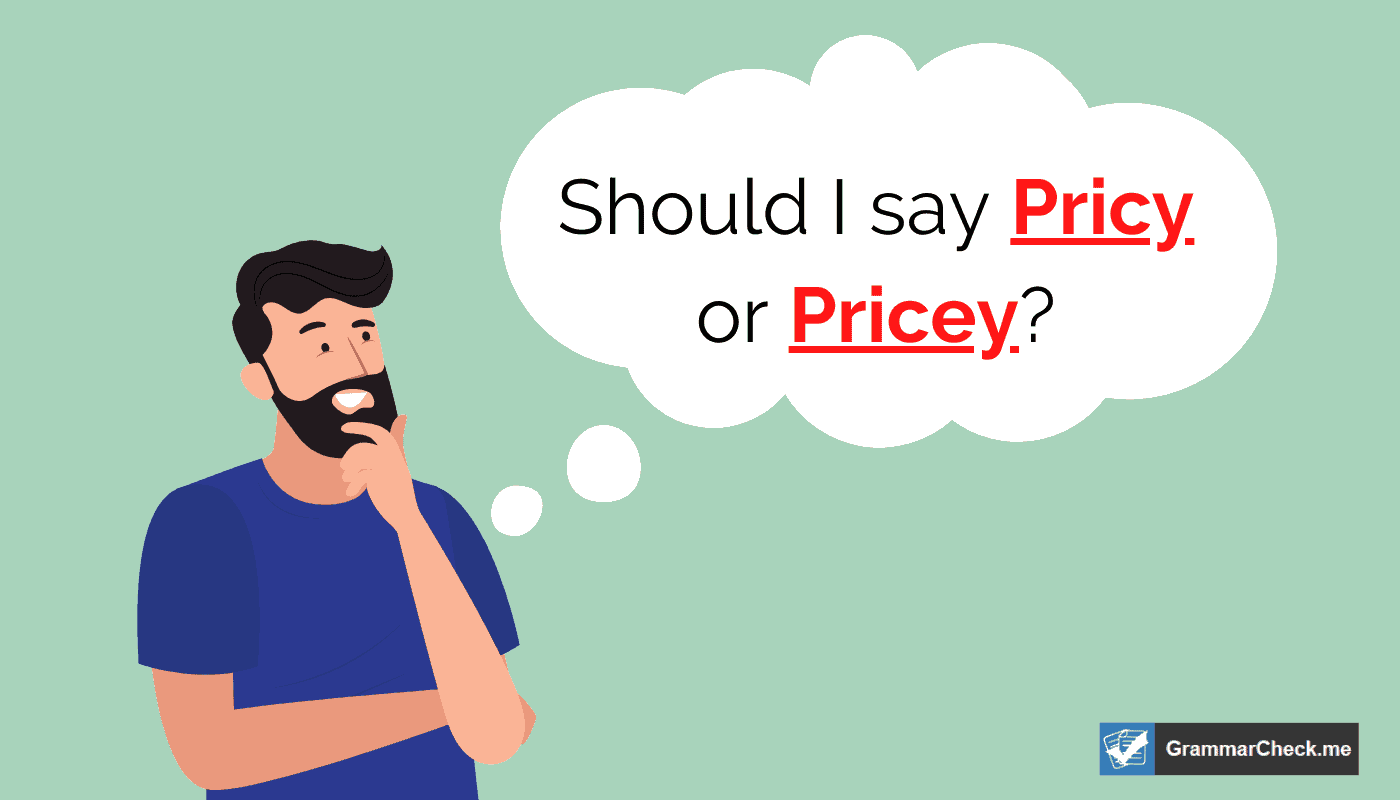You may see pricy or pricey used in any context, but which is correct? Find out in this article!

Always using the right words? Make sure:
Check Your TextEnglish is plagued with commonly misspelled and mispronounced words, to the point where misspellings become widely accepted. One reason is that the language continues to change and evolve, allowing certain words to get lost or modified over time.
Some of the most commonly misspelled words include:
- License
- Weather
- Separate
Another word that is often questioned when it comes to its spelling is “pricy”… or is it “pricey?” The meaning of the word is simple. This is a descriptive adjective used colloquially to describe something as expensive. What’s difficult is figuring out how the word should be spelled – and you may be surprised that the answer isn’t as straightforward as you’d imagine.
Some people may not notice that this word is spelled differently depending on who’s writing it, but it’s a word from which inconsistencies arise.
So which spelling is correct, pricy or pricey? Keep reading to find out.
Pricy or Pricey: What’s the Truth?

Let’s jump right into it. Both words are technically correct when it comes to pricy or pricey.
For some words where the difference in spelling is a simple “e,” the explanation is that they have a different spelling depending on the country you’re in. Take the difference between do to vs due to for example.
Take words that feature the letters “or,” for example. In the United States, most words are simply spelled with “or.” However, in England and other commonwealth countries, such as Canada, a “u” is added in between the “o” and the “r,” spelling out “our.”
To illustrate, here are some examples of where this rule plays out:
- Behavior (American) vs. behaviour (British)
- Honor (American) vs. honour (British)
- Color (American) vs colour (British)
- Favorite (American) vs. favourite (British)
The same goes for words that end in -ze in the United States. In Britain and other commonwealth states, these words end in -se.
Download Our eBook To Learn How To Create Amazing Content 1x Faster!
Oddly enough, Canada is an exception to this specific rule, with most words following the American spelling style and ending with -ze. That’s what happens when you have British influences but are neighbors with the U.S.!
Words that follow the -ze vs. ise rule include:
- Apologize (American) vs. apologise (British)
- Memorize (American) vs. memorise (British)
- Socialize (American) vs. socialise (British)
Seeing as this variation in spelling across the Atlantic is so prevalent, just like with the words gooses vs geese, you might think that this explains why “pricy” and “pricey” are both used.
Oddly enough, this isn’t the case. In fact, according to the New Oxford English Dictionary, both the United States and the United Kingdom use the same spelling of the word the majority of the time, and that spelling is “pricey.”
What is “Pricy”?
“Pricy” is considered a less commonly used variation of “pricey.” But why is that?
If we want to follow the strict rules of English grammar, “pricy” may be the word’s correct spelling because of the silent “e.”
The general grammatical rule is that you drop the “e” in a word when adding a vowel suffix, which is simply a suffix that begins with a vowel, such as -ing, -ed, and of course, –y. However, there are some tricky rules such as using w as a vowel.
Here are some examples of words modified with vowel suffixes:
- Note: Notable
- Rope: Roped
- Ice: Icy
Some words, like too late vs to late, are spelled very similarly but have different meanings. Let’s take the example of “icy” to compare with “pricy.” The root word of “pricy” is “price,” similar to “ice” in spelling. If we followed the same rule for both words, then “pricy” would be the correct spelling of the adjective.
However, this is not the case; there’s no particular rule as to why this exemption exists. But several other words carry this same exemption, such as:
- Dice: Dicey
- Poke: Pokey
Ultimately, this isn’t inordinately in English, a language known for exceptions to the rules! But it doesn’t make the “pricy” or “pricey” debate any less confusing.
Which Came First: Pricy or Pricey?

You may accept that you can use both “pricey” and “pricy” correctly and that “pricey” is the most commonly used form of the word, but there’s another question that you may be asking yourself. Which of the two spellings came first?
It’s hard to determine the answer to this question, as both words are relatively recent in the ever-evolving English language.
The Corpus of Historical American English (COHA) suggests that both variations in the spelling of the word date back a little under 100 years ago, around the time of the Great Depression. This makes sense considering the circumstances of the time. Think about it: the rising cost of living was so bad that they needed to invent a new word to describe it.
As mentioned, “pricey” (or “pricy”) is a colloquial term, just like dieing vs dying, so it’s difficult to pinpoint its exact origins and original spelling. But what’s certain today is that “pricey” is the most common spelling of the word.
Frequently Asked Questions
Yes. The word pricey is an adjective that is used to describe something that is expensive. For example, “That dress is really pricey!” or “This purse costs a lot, it’s quite pricey.”
Yes, pricey means expensive. Webster’s dictionary defines pricey as ” costing a great deal of money.” So if something is pricey, it means that it costs a lot of money. For example, a Prada handbag might be considered pricey because it costs a lot of money.
Here are some common synonyms for pricey: costly, expensive, dear, high-priced.
You might say “My friend’s new house is really pricey.”
Final Thoughts
To recap, both “pricy” and “pricey” are correct spellings of the word. However, the most accepted conclusion today is that “pricey” is the most common usage of the word. It’s a safe bet to use this spelling since it isn’t a strict grammar rule. How you spell the word may depend on the context of your writing.
After reading this article, you might have your own preference for how you want to spell the word! If you can’t choose, the term “expensive” is reliable and always there for you.

